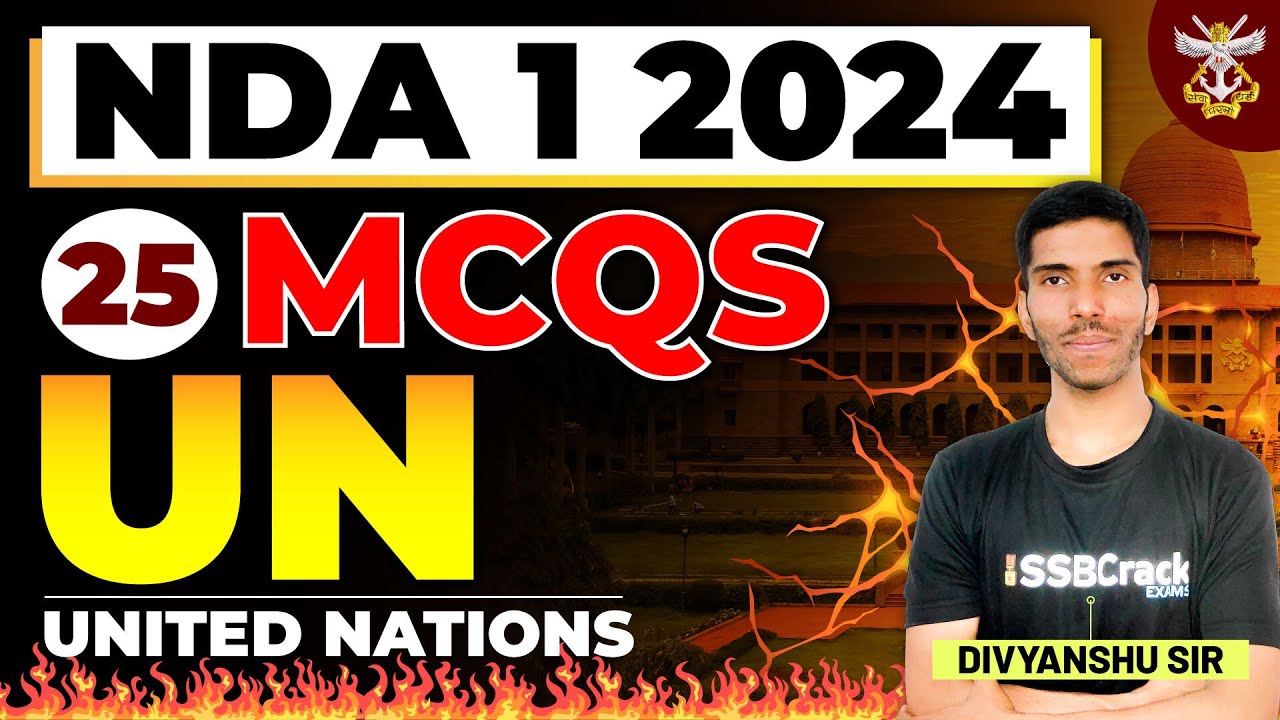The United Nations (UN) stands as a beacon of hope and cooperation in a world often characterized by conflict and discord. Since its inception on October 24, 1945, the UN has played a crucial role in promoting peace, security, human rights, and sustainable development worldwide.
NDA 1 2024 Top 25 MCQs On United Nations
History of the United Nations
The roots of the United Nations can be traced back to the devastation of World War II, which highlighted the urgent need for a more effective international organization to prevent future conflicts. The UN Charter was signed by 51 countries in San Francisco, envisioning a world where nations could resolve disputes peacefully and work together to address common challenges.
Structure of the United Nations
The United Nations is comprised of six principal organs:
- General Assembly: The primary deliberative body where all member states have equal representation and discuss global issues.
- Security Council: Responsible for maintaining international peace and security, with five permanent members (China, France, Russia, the United Kingdom, and the United States) and ten non-permanent members elected for two-year terms.
- Economic and Social Council (ECOSOC): Focuses on economic, social, and environmental issues, coordinating the work of specialized agencies and promoting sustainable development.
- Secretariat: Headed by the Secretary-General, responsible for implementing the decisions of the UN organs and managing day-to-day operations.
- International Court of Justice (ICJ): The principal judicial organ of the UN, settling legal disputes between states based on international law.
- Trusteeship Council: Originally tasked with supervising trust territories, it has suspended operations since 1994 after completing its mandate.
Functions and Impact of the United Nations
- Peacekeeping and Conflict Resolution: The UN deploys peacekeeping missions to areas of conflict, helping to facilitate ceasefires, protect civilians, and support peace processes.
- Human Rights: Through bodies like the Human Rights Council and treaties such as the Universal Declaration of Human Rights, the UN promotes and protects fundamental human rights globally.
- Development: The UN plays a vital role in addressing poverty, inequality, and environmental challenges through initiatives like the Sustainable Development Goals (SDGs) and agencies like UNICEF and the World Health Organization (WHO).
- Humanitarian Assistance: During crises such as natural disasters and refugee emergencies, the UN coordinates humanitarian aid efforts to provide essential support to affected populations.
- Climate Action: The UN Framework Convention on Climate Change (UNFCCC) and the Paris Agreement demonstrate the UN’s commitment to addressing climate change and promoting sustainable environmental practices.
Challenges and Future Prospects
Despite its achievements, the United Nations faces several challenges, including geopolitical tensions, budget constraints, and the need for ongoing reform to enhance its effectiveness and legitimacy. However, the UN remains a crucial forum for global cooperation and dialogue, serving as a platform for nations to work together in pursuit of a more peaceful, just, and sustainable world.
In conclusion, the United Nations is a cornerstone of international relations, promoting peace, security, human rights, and development on a global scale. Its continued relevance and impact underscore the importance of multilateral cooperation in addressing the complex challenges of the 21st century.








